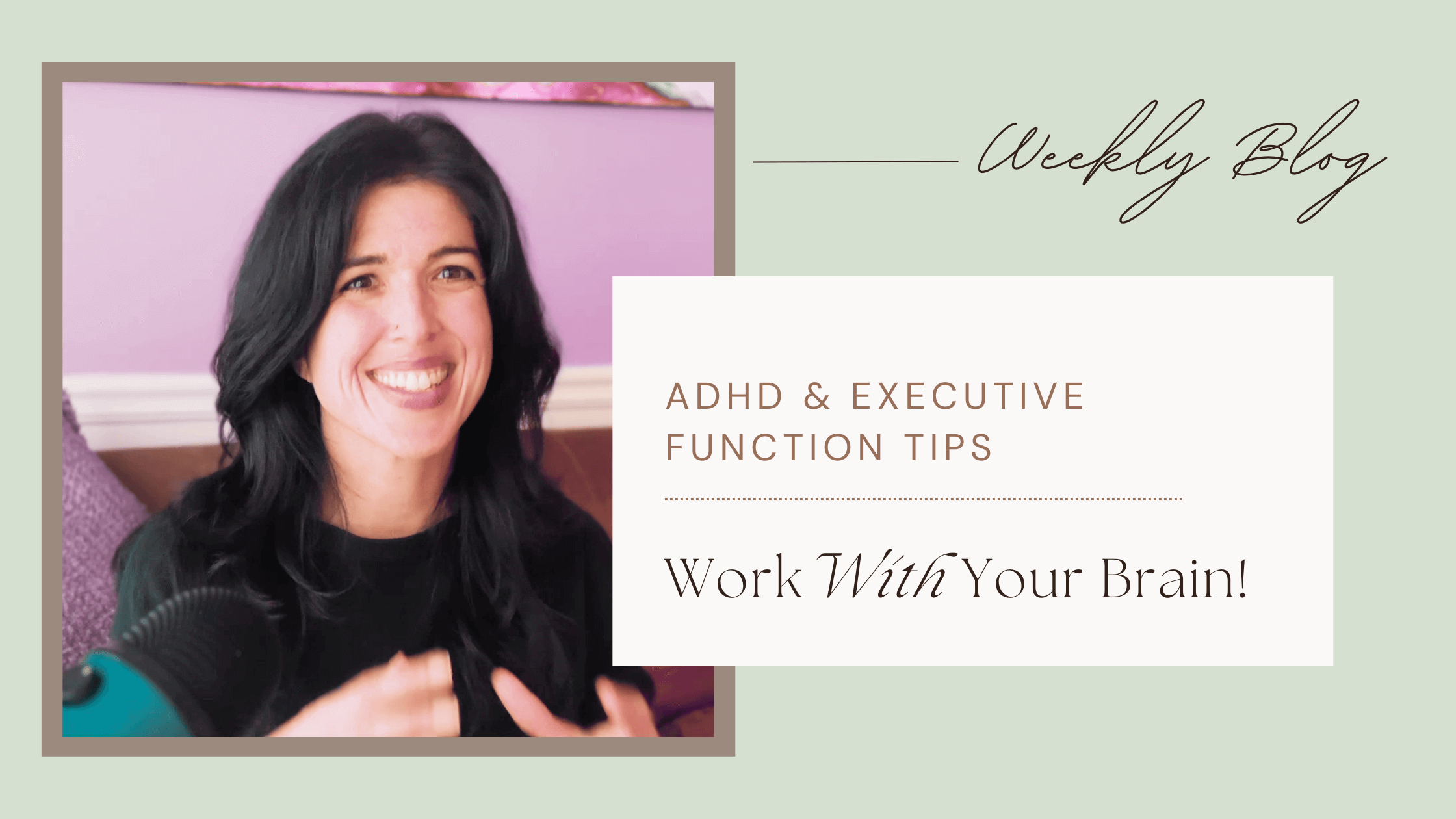
College shifts the game: in high school, there are rails and structure built in. In college? Not so much. That’s why many folks with ADHD hit a wall with this transition. I'm sharing 10 ADHD‑friendly tips for transitioning to college!
Transitioning from high school to college is a big leap for any student, but with ADHD it can really feel like being thrown in the deep end! The structure, reminders, and frequent grading that often exist in high school creates a kind of scaffolding for students. In college, that changes.
Students are expected to build the structure themselves and have less built- in support. The result? Overwhelm, missed deadlines, burnout, and struggle.
It doesn't have to be that way. With the right planning and support, you can set yourself up for a smooth college transition with ADHD.
10 Brain Friendly Tips For College Success
Here are 10 practical, no-shame strategies to help you set up a more ADHD‑friendly semester. This isn't an exhaustive list, but it's a good jumping off point for the beginning of the semester.

For those who had high school supports in place, this is not the time to drop them! You can always cut back on accommodations later, but having them in place during a big transition can help you avoid early overwhelm.
If you're diagnosed with ADHD and don't have accommodations, you may want to consider if adjustments like extended time on tests, preferential registration, or note-taking assistance would benefit you.
If you're applying for these in college, you'll need to meet with your school's disability services and provide documentation of your diagnosis. The earlier you can do that, the better.
Caveat: I've seen open-ended or super-extended deadlines for projects and assignments backfire for students. When this happens, it's often because the extensions eliminate the sense of urgency that helps them get started and they end up procrastinating and even more behind. You'll want to create some external deadlines to help you stay on track if you have an extended time accommodation on projects.

2. Schedule classes with your brain in mind
If mornings aren’t your thing (common with ADHD), avoid back-to-back early classes. Register early so you don’t get stuck with less than ideal slots (that might mean setting a reminder in your calendar of when registration opens).
If you have accommodations, early registration might be one to add- this can help you build a schedule that maximizes your energy and focus.
Consider leaving some buffer time between classes for brain resets and map out where your classes will be so you know you have enough time to make it to each one!
3. Do a full “semester setup day”
Once you get your syllabus and course info, spend time entering all due dates, weights, quizzes, projects into your calendar system. Including the "weight" of different assignments will help you be able to prioritize when needed. Mapping out course expectations early allows you to plan ahead instead of chasing surprises later.

4. Read your syllabus (seriously)
Syllabi are your professor’s cheat sheet- they tell you what you need to be successful in that class: grading scheme, expectations, schedule. Collect the important information it provides and input it into your system. This will help you get oriented and avoid extra effort later.
5. Build daily habits around email & assignments
Set a consistent time each day to review emails and assignment boards. Missed announcements or miscommunications can create chaos and derail your semester fast.
6. Do a weekly review / planning session
Look ahead to get a "bird's eye view" of all your classes and spot heavy weeks, overlapping deadlines, or conflicts. This gives you time to adjust or ask for help before you’re scrambling.

7. Identify your “sweet spot” study spaces
Silent libraries may not always be best for people with ADHD. You might need more stimulation (coffee shop hum, ambient music) in order to focus. Every person is different, so pay attention to the balance you need. Scout 2–3 options in advance so you have backup when one isn’t available.
8. Notice how you learn
Recognize if you’re a more visual, auditory, or tactile learner. (You may even enjoy all 3). If lectures are mostly auditory and that's not your preferred method to digest information, find ways to supplement (record, get slides in advance, make concept maps, use transcription tools). Use multi-sensory strategies when possible.

9. Be mindful about medication & logistics
If you're using ADHD medication, plan ahead: know how and where to refill in a new area, storage rules, and set firm boundaries about sharing (don’t). Be proactive in communicating with prescribing professionals so you're not running out of medication when you need it most.
10. Plug into external accountability & supports
You don’t have to "white knuckle" things. Use study groups, tutoring labs, instructional labs, or body-doubling to create support and accountability. These external structures can help you get going and stay on track.
Bonus tip: Don’t forget self care. Sleep, nutrition, movement aren’t optional; they affect how well your brain functions and your academic performance.
College may not come with built-in scaffolding, but with foresight, systems, and self-awareness, you can build your own structure that works for you. With strategies that are sustainable, flexible, and designed for your brain, you can have a successful transition!
Need more help working with your brain? Reach out for 1:1 or group coaching support here.
Need more support ?
I can help.



















0 Comments